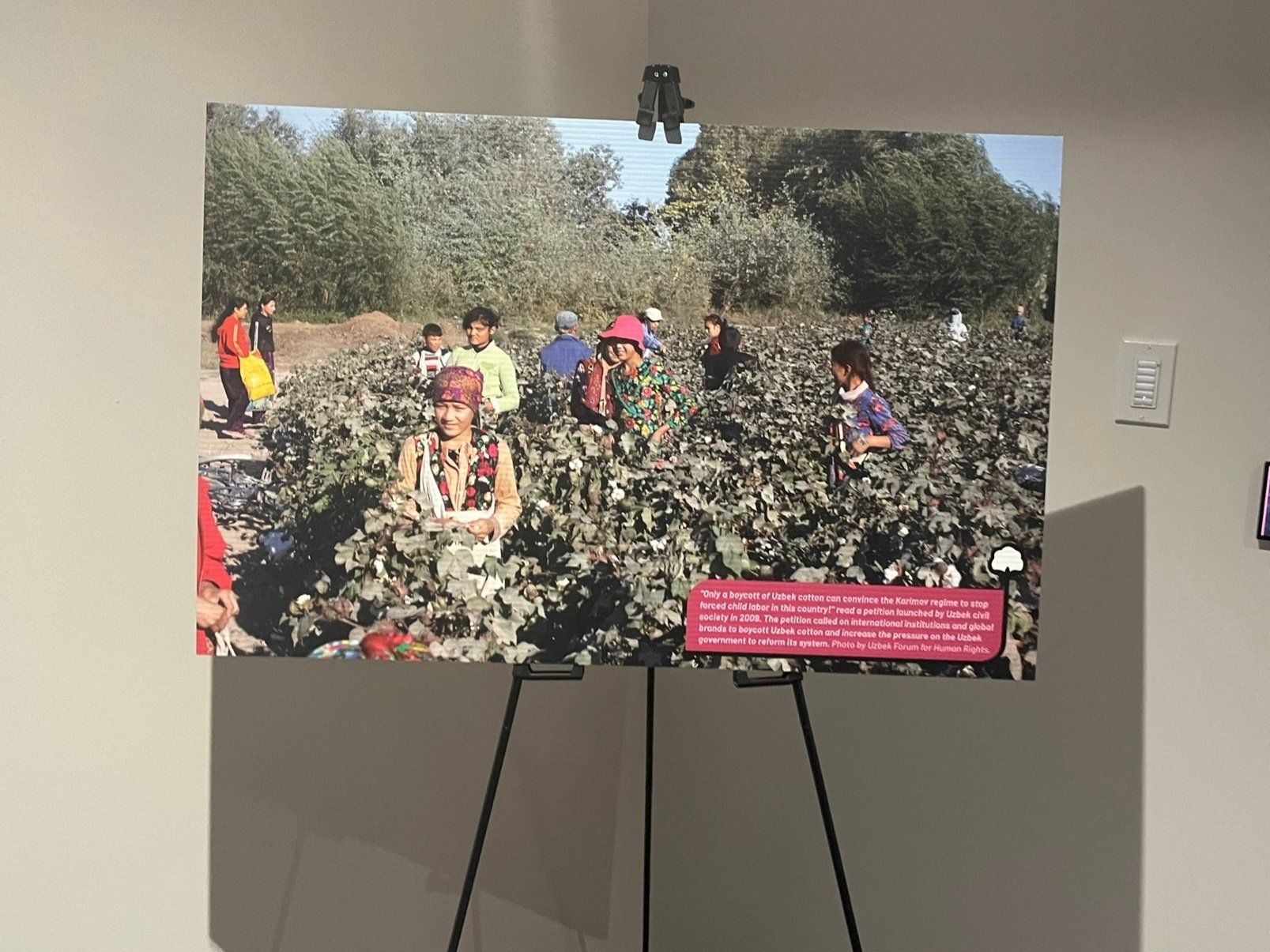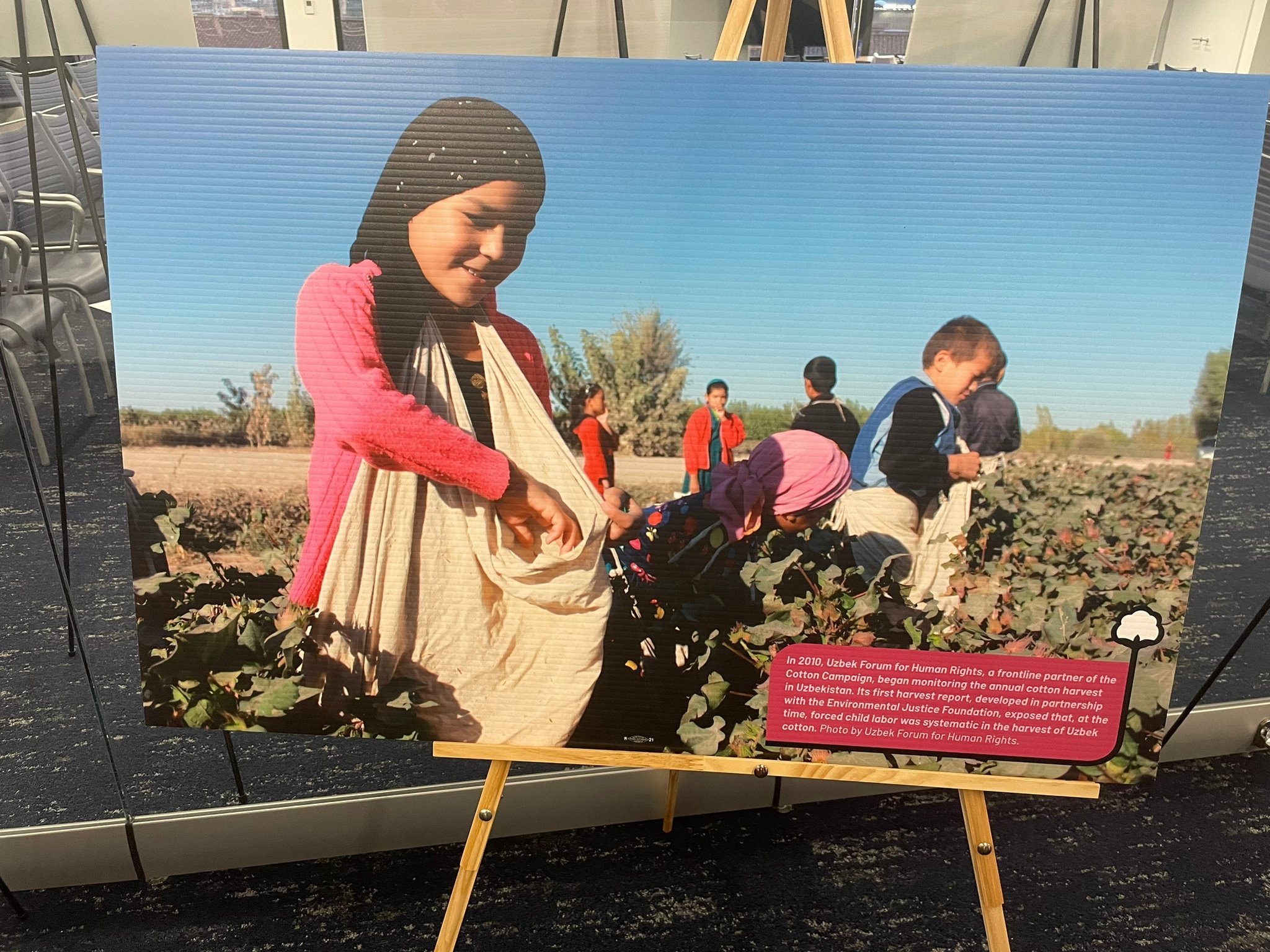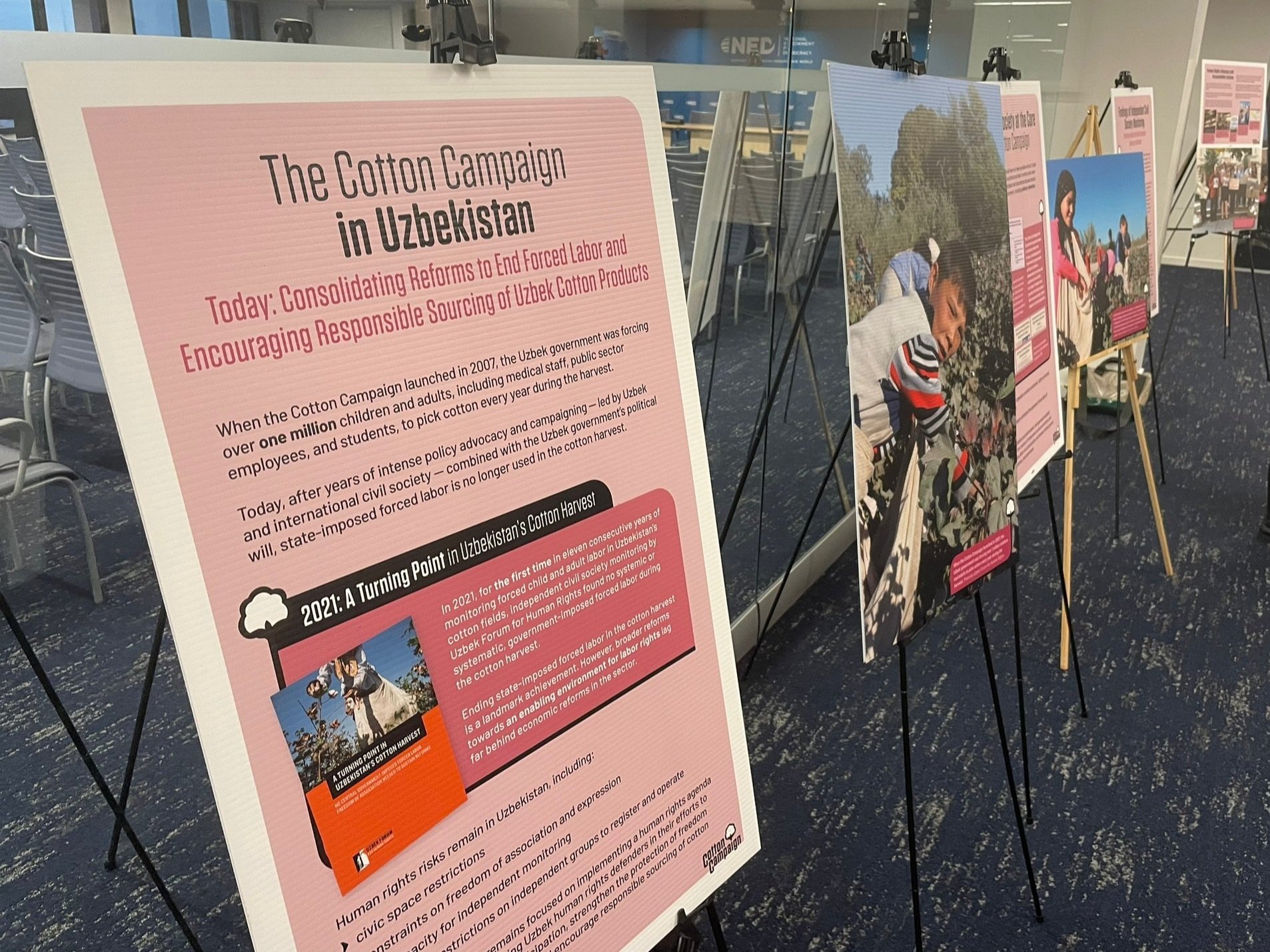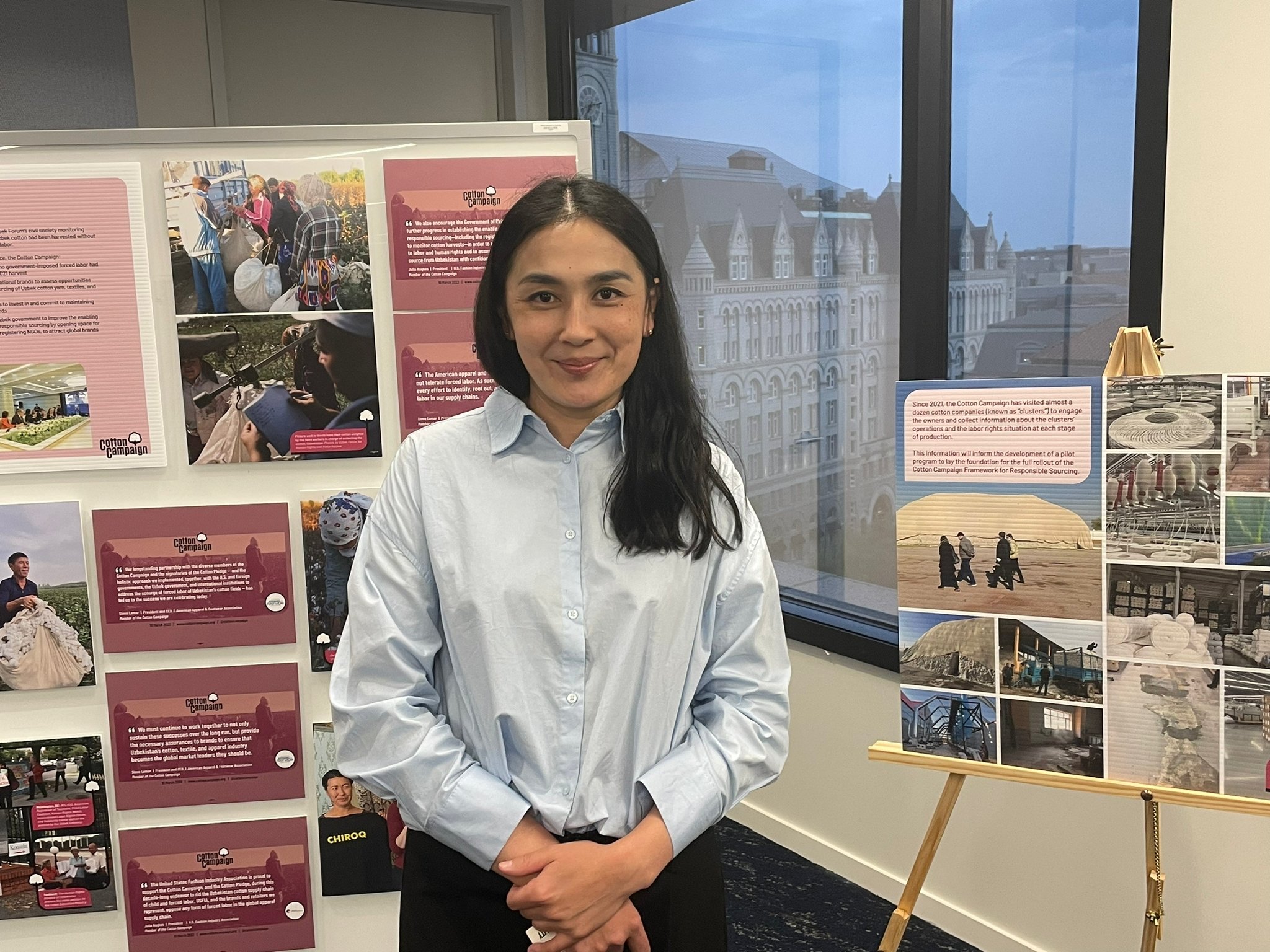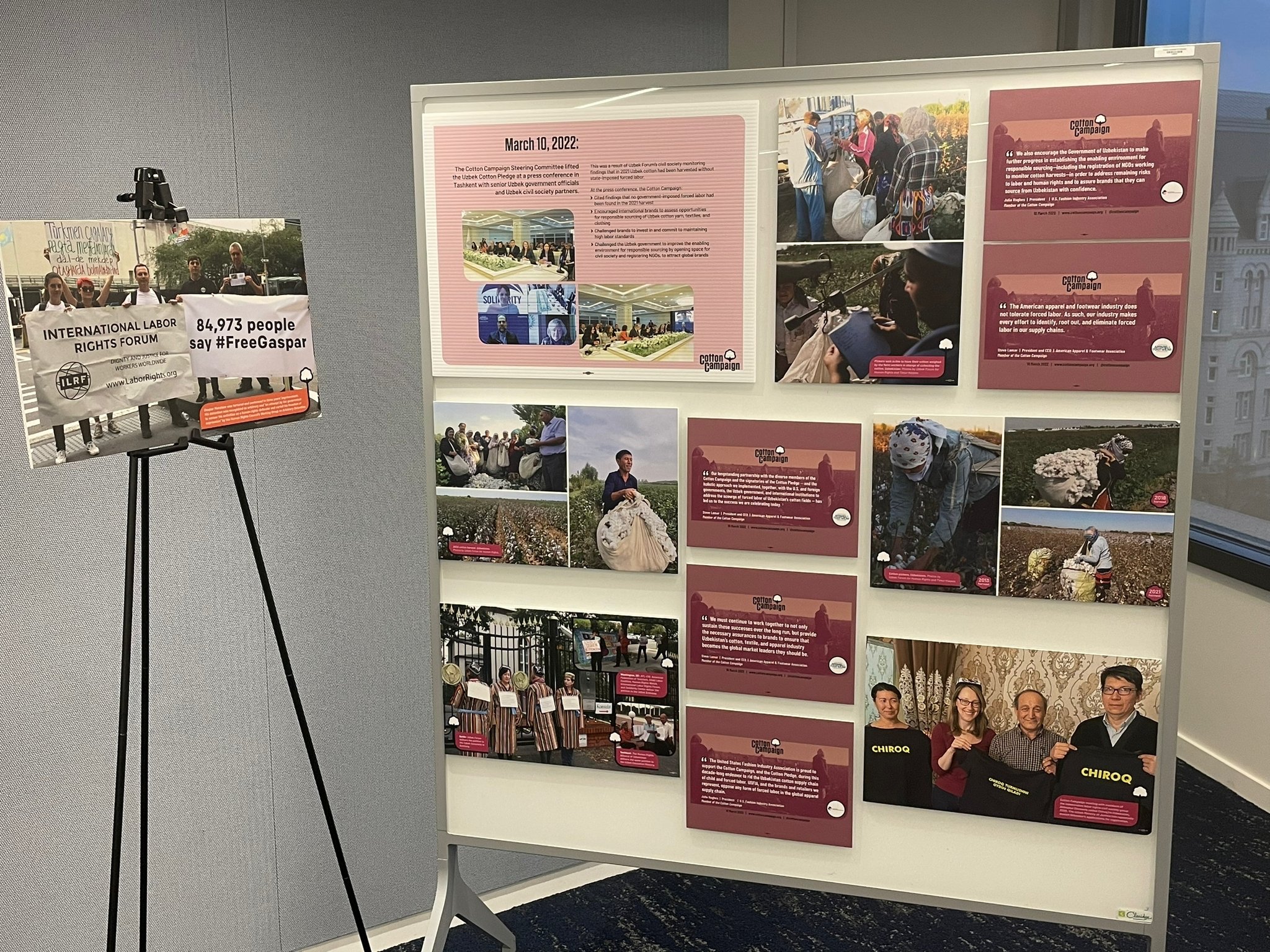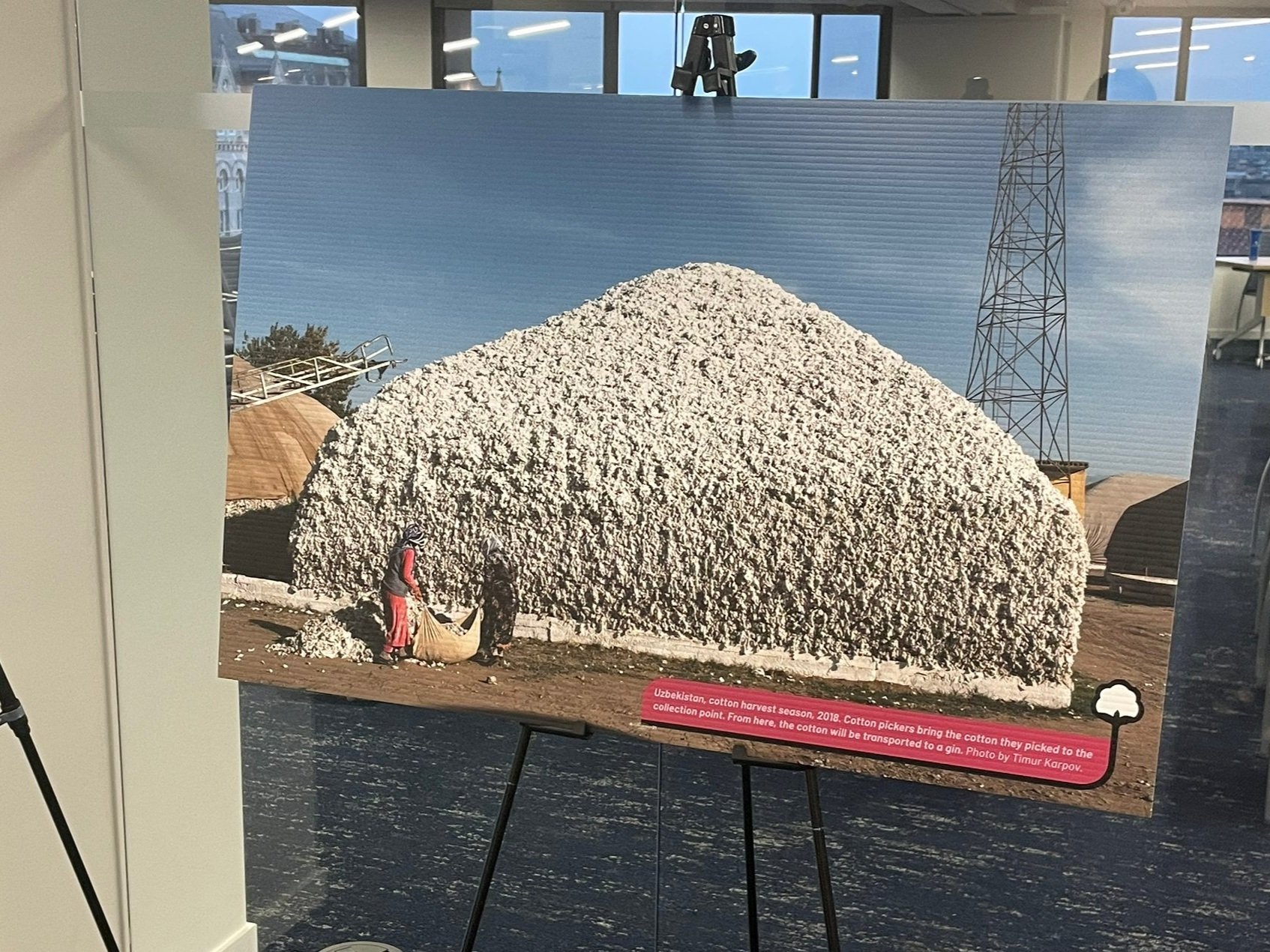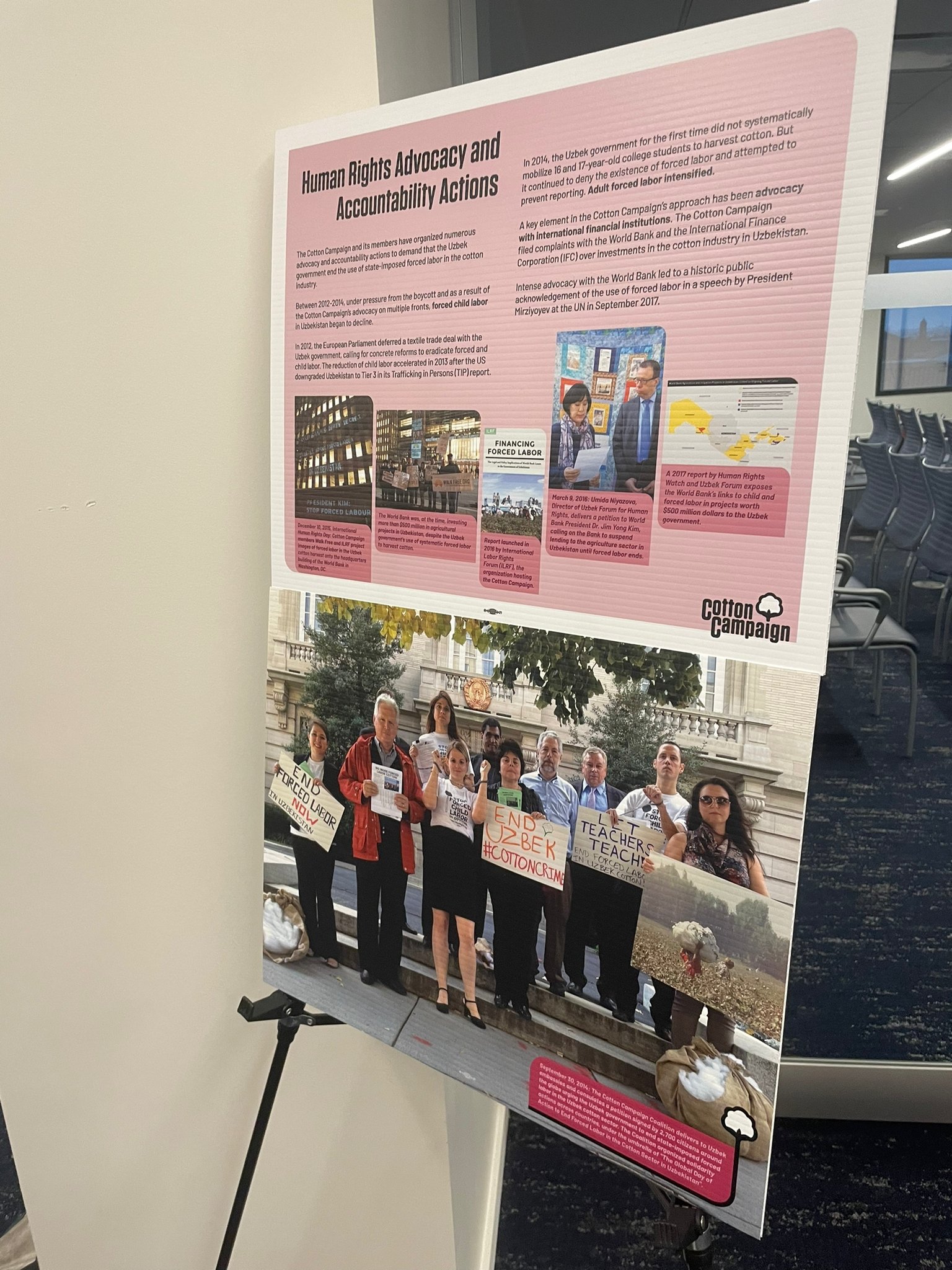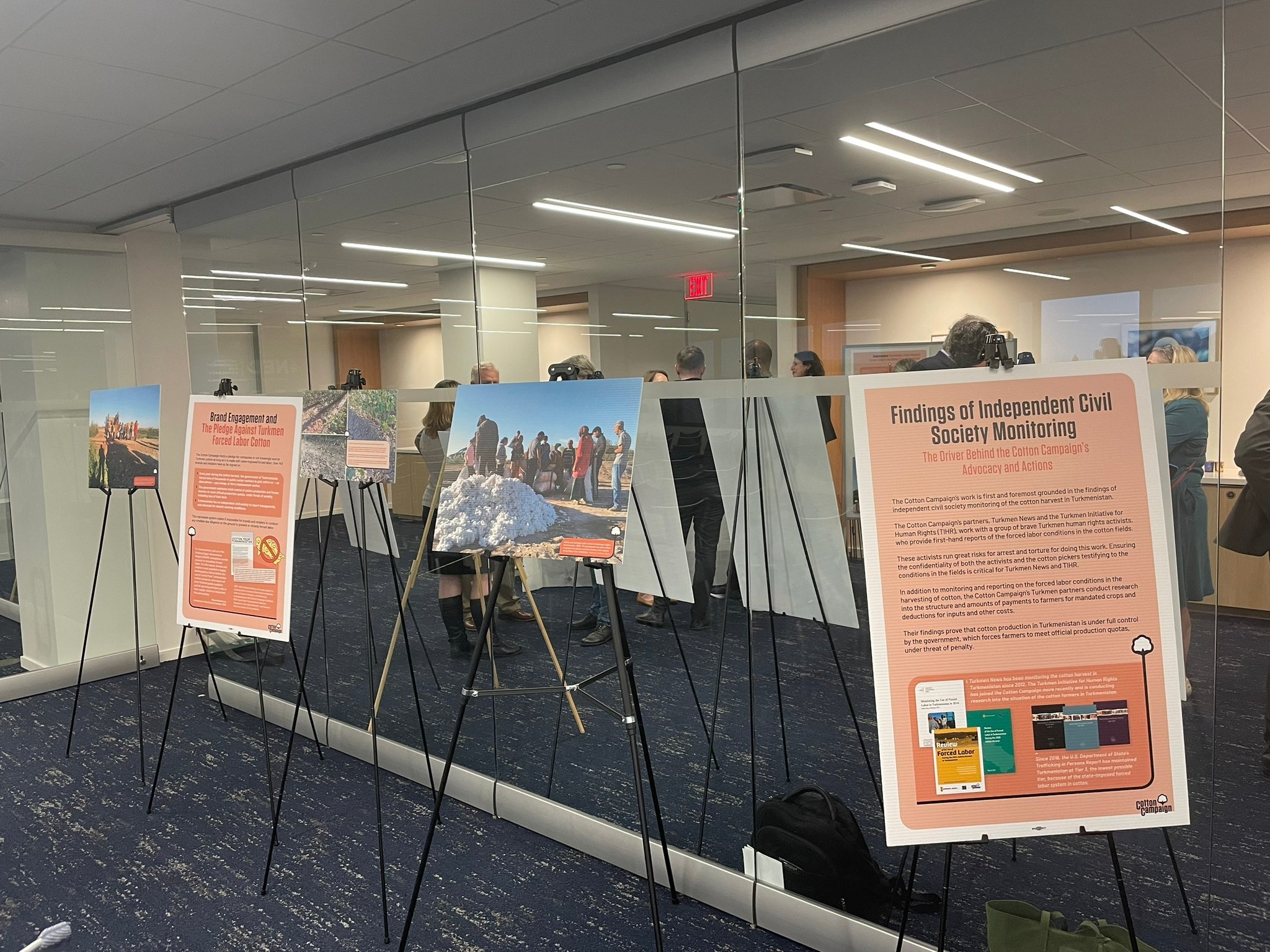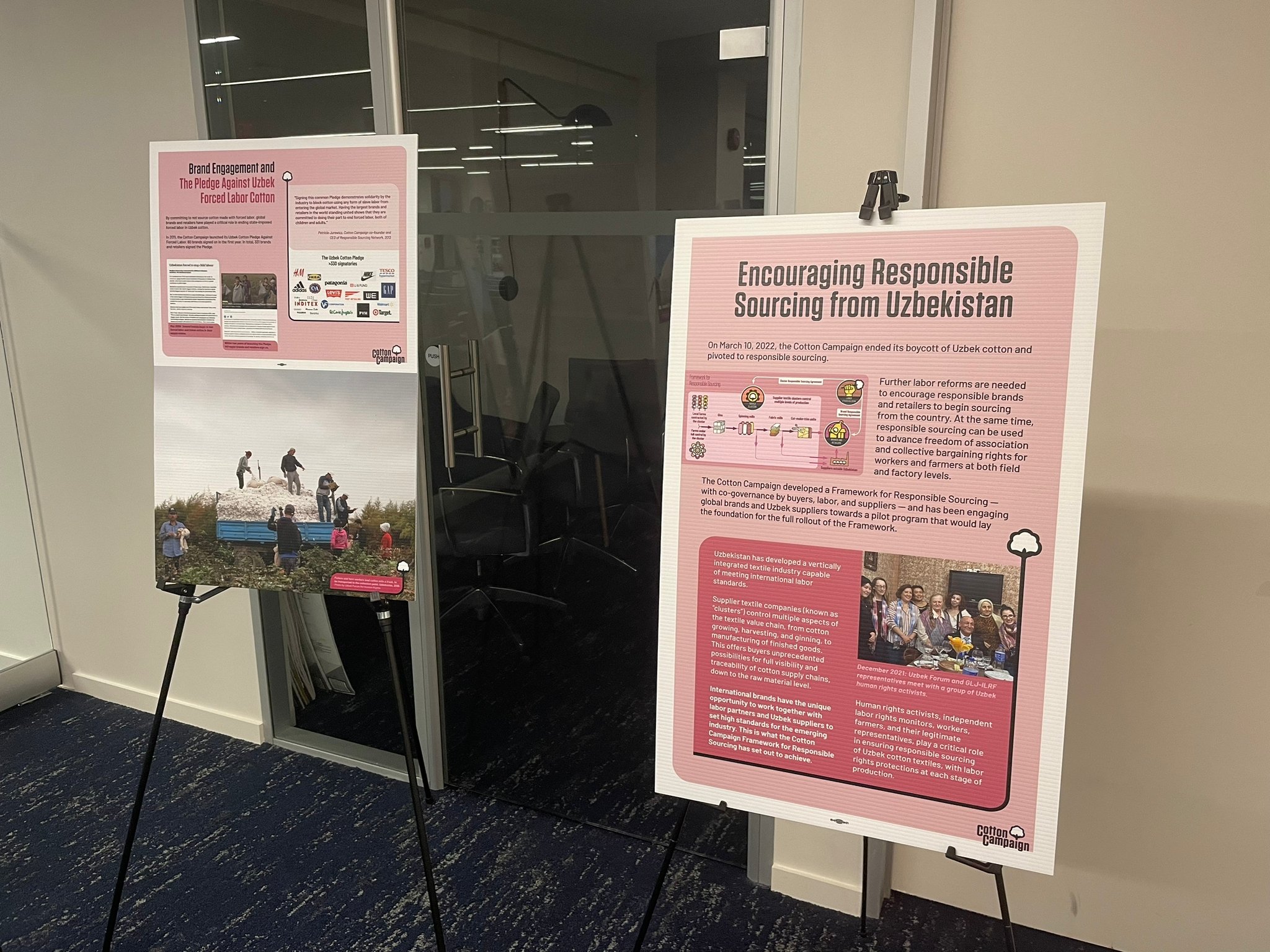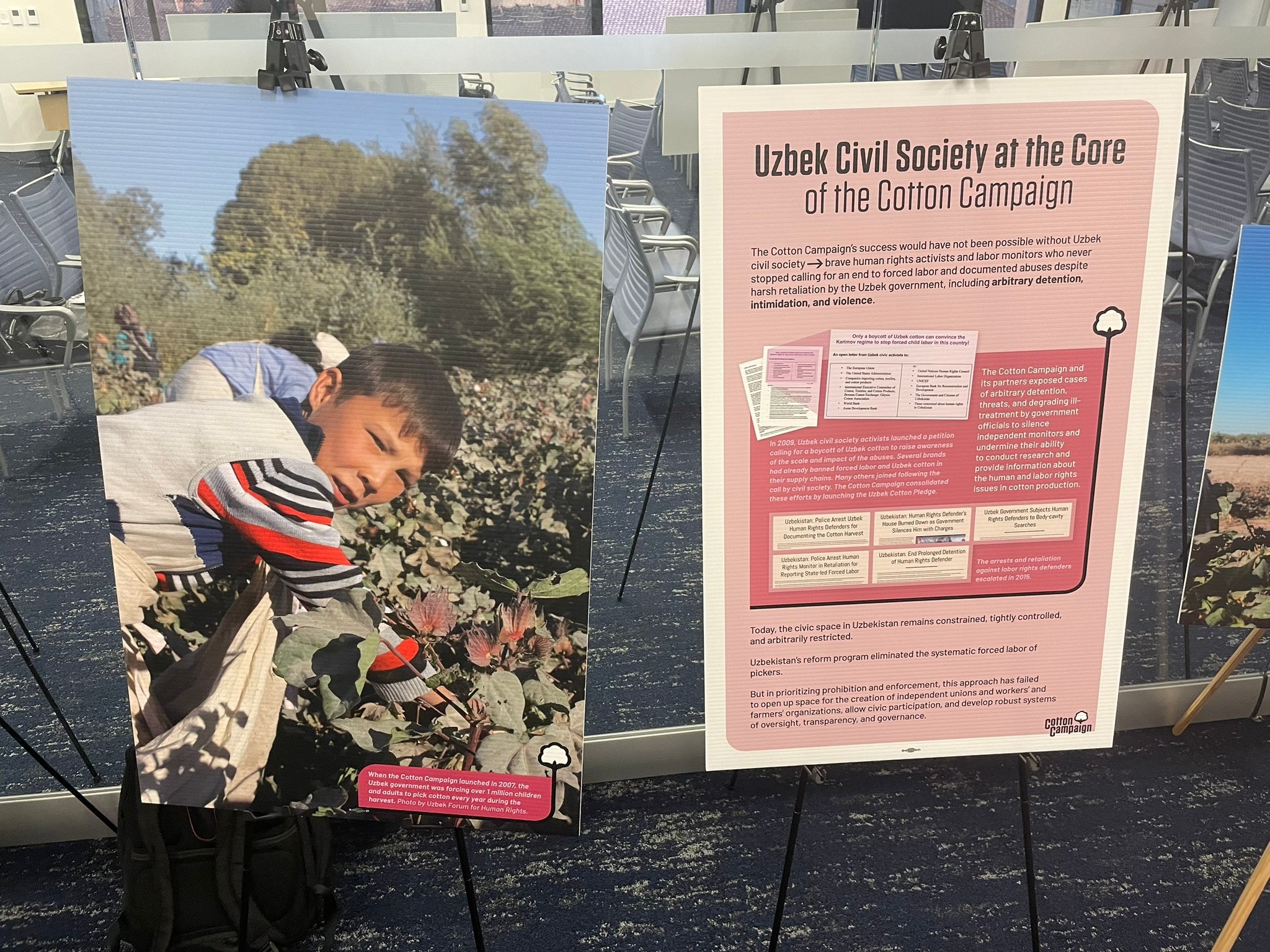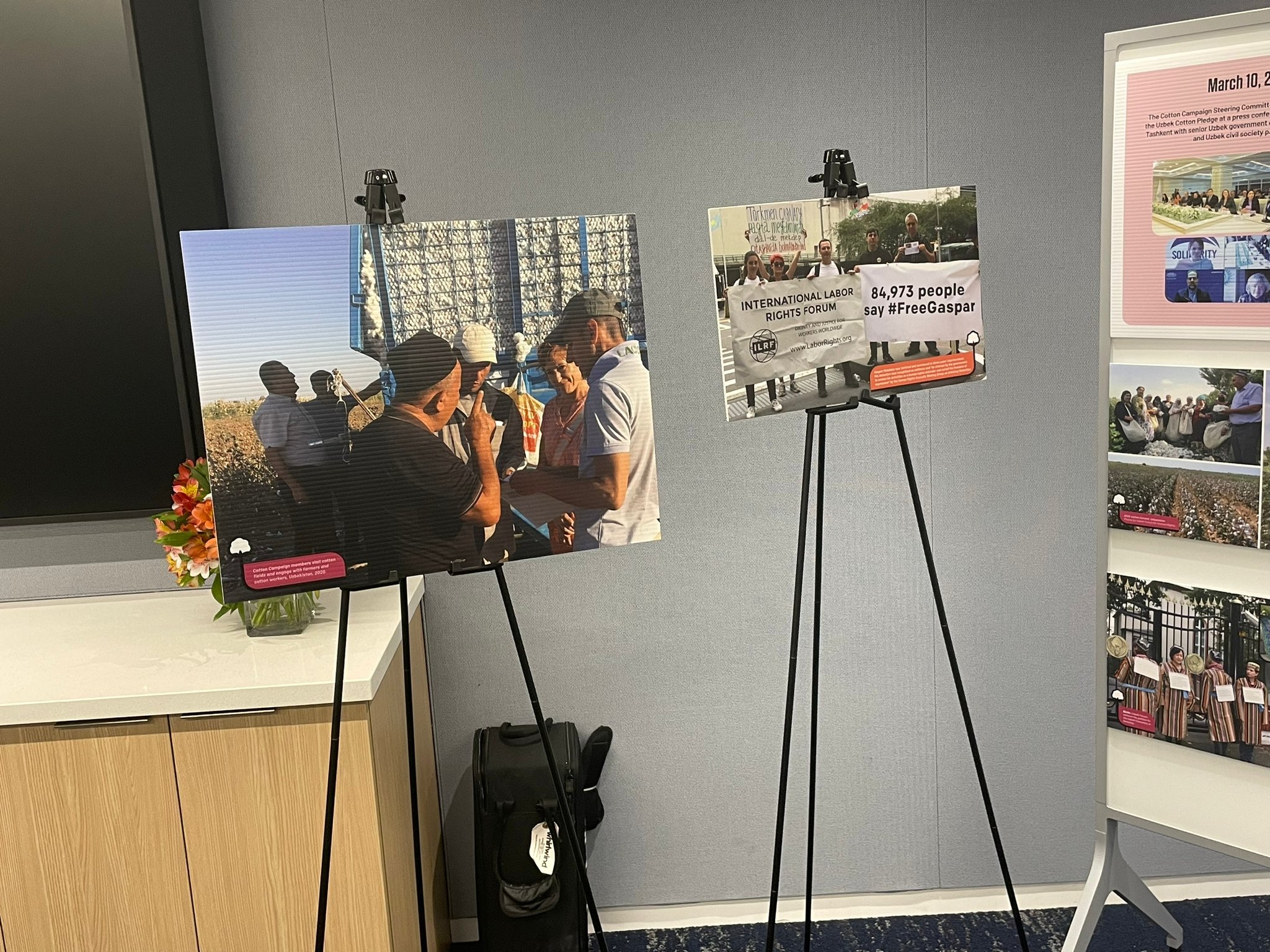What Does Winning Look Like: Investing in Labor Rights Campaigns to Foster Change in Repressive Systems
On April 5, 2023, Global Labor Justice-International Labor Rights Forum (GLJ-ILRF) and The National Endowment for Democracy (NED) hosted two-panel discussions and a reception to reflect on:
One year since the end of state-imposed forced labor in Uzbek cotton—following 15 years of intense policy advocacy and campaigning by the Cotton Campaign—including the implications for global cotton supply chains
Next steps for the Cotton Campaign’s work in Uzbekistan, to secure the progress made and expand the space for labor rights
Making labor rights gains in Turkmenistan and the Uyghur region, where governments continue to use state-imposed forced labor in the production of cotton
The panels placed the fight for workers’ rights in Central Asia in the broader context of global supply chains and supply chain governance. This has been given new prominence and urgency by systematic forced labor as part of genocide and crimes against humanity perpetrated by the government of China against the Uyghur and other Turkic and/or Muslim-majority peoples.
Speakers and Panelists
Opening Remarks
Kirsten D. Madison
Vice President of Government Relations, National Endowment for Democracy
Shawna Bader-Blau
Executive Director, Solidarity CenterSue Longley
General Secretary, International Union of Food, Agricultural, Hotel, Restaurant, Catering, Tobacco and Allied Workers' Associations (IUF)
Jennifer (JJ) Rosenbaum
Executive Director, Global Labor Justice-International Labor Rights Forum (GLJ-ILRF)
Panel 1: The Cotton Campaign’s Transformational Approach to Ending Forced Labor
Bennett Freeman
Cotton Campaign co-founder and former U.S. Deputy Assistant Secretary of State for Democracy, Human Rights and LaborPatricia Jurewicz
Cotton Campaign co-founder and founder and CEO, Responsible Sourcing NetworkGulnoz Mamarasulova
Labor Rights Monitor, Uzbek Forum for Human RightsJulie Hughes
President, US Fashion Industry AssociationModerated by Spaska Gatzinska
Deputy Director, Eurasia, National Endowment for Democracy
Panel 2: Coalition Building: On the Way to Forced Labor Free Supply Chains and Democracy in the Workplaces
Jewher Ilham
Forced Labor Project Coordinator, Worker Rights ConsortiumRuslan Myatiev
Founder and Editor, Turkmen.NewsUmida Niyazova
Director, Uzbek Forum for Human RightsAllison Gill
Forced Labor Program Director, Global Labor Justice-International Labor Rights Forum (GLJ-ILRF)Moderated by Raluca Dumitrescu
Cotton Campaign Coordinator, Global Labor Justice-International Labor Rights Forum (GLJ-ILRF)
Closing Remarks
Kelly M. Fay Rodríguez
Special Representative for International Labor Affairs, U.S. Department of State
During the reception, Thea Lee, Deputy Undersecretary for International Labor Affairs at Bureau of International Labor Affairs (ILAB), provided inspiring remarks, emphasizing the key role that independent trade unions play in protecting workers from forced labor and exploitative working conditions.
The Cotton Campaign thanks all its Coalition members, partners, donors, and longtime allies in its fight to end forced labor and promote decent work for cotton workers!
“The Cotton Campaign shows that workers in every country of the world are demanding international labor standards apply to them—and that we can, and should, run campaigns like this to deliver those international labor rights in every place.”
—Jennifer (JJ) Rosenbaum, Executive Director, GLJ-ILRF
“In Uzbekistan, we have an opportunity to test new approaches that we’ve seen work in other places, in particular in the garment sector. These require buyers to use their leverage to ensure labor rights are upheld in their supply chains and that workers have control over their working conditions. This can be done through the development of robust, worker-led monitoring mechanisms and grievance mechanisms, to ensure that labor disputes are resolved at the workplace level and don’t result in forced labor conditions.”
“Companies cannot be sourcing cotton from Turkmenistan—where the government continues to use state-imposed forced labor to harvest cotton. Brands need to look into their supply chains and really understand if they have exposure to Turkmen cotton, and disengage. We have strong import legislation in the US and we hope to see it adopted similarly in EU countries and other jurisdictions so that companies cannot sell these products made with forced labor.”
—Allison Gill, Forced Labor Program Director, GLJ-ILRF
Kirsten D. Madison, Vice President of Government Relations, National Endowment for Democracy
Shawna Bader-Blau, Executive Director, Solidarity Center
Panel 1: The Cotton Campaign’s Transformational Approach to Ending Forced Labor
Panel 2: Coalition Building—On the Way to Forced Labor Free Supply Chains and Democracy in the Workplaces
Kelly M. Fay Rodríguez, Special Representative for International Labor Affairs, U.S. Department of State
An on-site exhibition showcased the Cotton Campaign’s work and key milestones.
